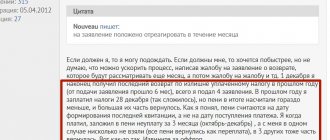Published: 01/19/2017. Category: Law and Law
A mandatory audit means an independent review and analysis of the company’s activities, carried out in accordance with the norms of the Federal Law “On Auditing Activities”. At the end of the study, a written report is formed. A specialized company conducts mandatory audits in accordance with current regulations. The entire range of actions is carried out by specialists with the proper knowledge on the basis of permission confirmed by a license.
Today, verification of record keeping becomes a mandatory condition for conducting business starting in 2021. Be sure to check out the list of such companies.
What are mandatory audit criteria?
There is no unambiguous closed list of criteria in the audit legislation. All cases when a mandatory audit of financial statements for 2021 should be carried out were collected in the information of the Ministry of Finance of the Russian Federation. This list includes the following main criteria for mandatory audit in 2021:
- conducting a certain type of activity,
- exceeding established income or asset limits,
- a certain organizational and legal form,
- belonging to a specific organization,
- presentation of consolidated statements.
Companies should conduct a mandatory audit, the criteria for which are given above, annually. The results of the audit are formalized in an audit report and are subject to entry into the Unified Federal Register of information on the facts of the activities of legal entities.
Useful auditing features
It should be noted that the audit, in addition to its mandatory nature in the above cases, also performs a number of positive functions for the organization.
- a great way to prepare for an upcoming audit by tax authorities, and therefore an opportunity to save on penalties. In addition, the director personally bears not only administrative and financial liability, but also criminal liability for the activities of the organization. Without deliberately violating tax laws, the head of the company may still be subject to persecution by regulatory authorities. There are many reasons for this, but the most common of them is an accountant’s mistake;
- an audit is a good opportunity to check the qualifications and work of accounting personnel, because an accounting error during an audit can be costly;
- the audit evaluates the effectiveness of the organization’s activities, since a mandatory element of the audit is to perform an analysis of financial and economic activities;
- New ways to minimize tax payments can be discovered. In practice, there are quite often cases when organizations overpay taxes due to technical errors or ignorance of certain features and benefits of tax legislation.
Firmmaker, January 2012 (updated annually) Svetlana Markina, Irina Bazyleva When using, a link is required
Statutory audit for 2021 - criteria
We list for which organizations at the end of 2021 it will be mandatory to have an audit report, based on the main criteria for a mandatory audit:
- for credit organizations, credit history bureaus, organizations that are professional participants in the securities market, insurance companies, mutual insurance companies, clearing organizations, trade organizers, gambling organizers, lottery operators, special depositories, non-state pension, joint-stock investment and other funds managing mutual fund or non-state pension fund companies, as well as organizations that have securities and others admitted to trading;
- for organizations whose revenue for 2021 exceeded 400 million rubles, or whose balance sheet assets as of December 31, 2016 amounted to more than 60 million rubles; these criteria for conducting a mandatory audit in 2021 do not apply to state unitary enterprises, municipal unitary enterprises, agricultural cooperatives and government agencies;
- absolutely for all joint-stock companies, as well as funds, state corporations, state-owned companies, federal state unitary enterprises, public law companies;
- for the Central Bank of the Russian Federation, the Deposit Insurance Agency, state corporations Rostec, Rosatom, JSC Russian Railways, the Credit Assistance Fund, etc., in this case, the criterion for mandatory audit is belonging to a specific organization;
- for organizations presenting or disclosing annual consolidated financial statements.
Such criteria for conducting a mandatory audit are provided for in Art. 5 of Law No. 307-FZ and other laws of the Russian Federation. For example, the law of December 1, 2007 No. 315-FZ obliges to conduct audits in self-regulatory organizations (clause 4 of Article 12 of Law No. 315-FZ), and according to the law of December 30, 2004 No. 214-FZ, the developer’s reporting is subject to a mandatory audit, clause 9. 4 tbsp. 18 of Law No. 315-FZ). Housing savings cooperatives, government, microfinance and other organizations are also subject to audit.
Requirements for the auditor
The audit can be carried out by an auditor or an audit organization, which must be a member of the SRO. The SRO determines the requirements for membership (Article 18 of the Federal Law 307-FZ):
- availability of an auditor qualification certificate;
- a commercial organization can be created in any organizational and legal form, with the exception of a public joint-stock company, state or municipal unitary enterprise;
- the number of auditors who are employees of a commercial organization on the basis of employment contracts must be at least 3 (three);
- the share of the authorized (share) capital of a commercial organization owned by auditors and (or) audit organizations must be at least 51 percent;
- the number of auditors in the collegial executive body of a commercial organization must be at least 50 percent of the composition of such executive body. The person who is the sole executive body of a commercial organization must be an auditor. The powers of the executive body of a commercial organization cannot be transferred under an agreement to another commercial organization or to an individual entrepreneur (manager);
- the auditor's impeccable business reputation is a positive assessment. When assessing the business reputation of auditors, the SRO assumes that the audit organization has an impeccable business reputation, unless there is evidence to the contrary. For example, a knowingly false audit report, being held accountable two or more times within three years for gross violation of the Rules of Independence of Auditors and Auditing Organizations, causing damage, evading external quality control of work, unreliability of material information, having an unexpunged or unexpunged criminal record, presence of a court conviction, etc.;
- availability and compliance with the rules for internal quality control;
- payment of contributions to SRO.
What is an SRO of auditors?
The story is like this.
1993 - temporary Auditing Rules appeared.
1994 - mandatory certification of auditors was introduced.
1995 - licensing of audit organizations and private auditors appeared.
2002 - Federal Law “On Auditing”, which had a certain impact on the financial audit market and its movement towards more civilized work standards. In particular, the law established a special legal capacity for audit organizations (audit firms have the right to engage only in auditing and related services). A minimum staff size for audit firms was introduced. The access of individual auditors to the statutory audit market was closed.
2009 - Federal Law “On Auditing Activities” No. 307-FZ, according to which the licensing of auditors was replaced by mandatory membership in audit SROs. Individual auditors must also be members of the SRO. Individual auditors have partially regained access to conducting statutory audits. Liability insurance has been replaced by the mechanism of SRO compensation funds.
Currently, all audit SROs have merged into one - Self-regulatory organization of auditors Association "Commonwealth". The number of certified auditors is 18.8 thousand people and 4.5 thousand audit organizations. The Russian audit market is represented by three main groups of players:
- international audit and consulting groups (“Big Four”),
- large Russian auditing and consulting companies, many of which are part of international networks and provide services under their brand,
- medium and small audit companies.
Mandatory audit - 2021 criteria for LLC
The presence of an auditor's report as part of the annual reporting, especially for limited liability companies, is not stipulated by Law No. 315-FZ, but if the LLC falls under any of the criteria listed above, then an audit is mandatory for it.
Thus, in 2021, a mandatory audit is required for LLCs, the criteria of which are as follows:
- revenue in 2021 excluding VAT exceeds RUB 400 million, or
- balance sheet assets as of December 31, 2016 exceed 60 million rubles.
If such an LLC belongs to small businesses, this status does not exempt it from mandatory audit.
The LLC Law No. 14-FZ dated 02/08/1998 provides for an audit by decision of the general meeting of company participants, and a mandatory audit is required if this is established by other laws and regulations (Article 48 of Law No. 14-FZ).
Why is it necessary to conduct a mandatory audit of the enterprise based on the results of 2021?
The experience of the audit office allows us to assert that the organizations that conducted the audit were able to promptly identify major errors in accounting and correct them in a timely manner. Therefore, mandatory audit has its advantages and undoubted benefits.
Elimination of common errors.
Timely identification and elimination of inconsistencies in tax and accounting is possible through a timely independent audit based on the results of the reporting financial year. Correcting such errors for the reporting financial year both in accounting and tax accounting will allow you to avoid penalties from tax inspectors.
During the audit of the company, auditors check not only the correctness of the preparation of financial statements, but also the correctness of the formation of tax returns and their reliability based on the results of the reporting year 2021. The relevance of correct accounting is especially important in view of the increased administrative liability for violations of accounting legislation and the presentation of unreliable financial statements. For gross violations in accounting, fines have been increased. New fines were approved on March 30, 2021. The President signed Federal Law No. 77-FZ on amendments to the Code of Administrative Offenses of the Russian Federation. Penalties for officials are set in the range from 5,000 to 10,000 rubles (previously - from 2 to 3 thousand rubles). For a repeated violation within a calendar year, the fine will increase and range from 10,000 to 20,000 rubles or disqualification for a period of one to two years (previously, punishment for a repeated violation was not provided).
The following are violations that are classified as gross:
- understatement of accrued taxes and fees by at least 10% due to distortion of accounting data;
- distortion of any indicator of accounting (financial) statements expressed in monetary terms by at least 10%;
- registration of a fact of economic life that has not taken place, an imaginary, feigned object of accounting in the accounting registers;
- maintaining accounting accounts outside the applicable accounting registers;
- preparation of accounting (financial) statements not based on data from accounting registers;
- the economic entity lacks primary accounting documents and (or) accounting registers and (or) accounting (financial) statements and (or) an audit report on the accounting (financial) statements within the established storage periods for such documents.
The statute of limitations for bringing to justice for violation of accounting legislation is established by Article 4.5 of the Code of Administrative Offenses and is limited to two years from the date of commission of the offense (previously this period was 3 months).
Penalty for lack of an audit report.
If an organization, for some reason, has not conducted a mandatory audit, it will not be punished for this; current legislation does not provide for liability for failure to conduct a mandatory audit, but administrative liability has been established for the absence (failure to submit, non-publication) of an audit report.
In particular, the absence of an audit report on the accounting (financial) statements of the Joint Stock Company entails the imposition of an administrative fine on officials in the amount of five thousand to ten thousand rubles in accordance with Part 1 of Art. 15.11 of the Code of the Russian Federation on Administrative Offences.
Failure to submit or untimely submission of annual accounting (financial) statements to the state statistics bodies, which must include an auditor’s report, will result in an administrative fine under Art. 19.7 of the Code of Administrative Offenses of the Russian Federation in the amount of three hundred to five hundred rubles for officials and from three thousand to five thousand rubles for legal entities.
Failure of the joint-stock company to publish the audit report on the Internet within the prescribed period, in accordance with Part 2 of Art. 15.19 of the Code of Administrative Offenses of the Russian Federation, may entail the imposition of an administrative fine on officials in the amount of thirty to fifty thousand rubles or disqualification for a period of one to two years; for legal entities - from seven hundred thousand to one million rubles.
What documents are checked?
During the audit, auditors request a large list of documents, which includes:
- accounting (this includes 2 important papers: a balance sheet and a statement of financial results of the company, but they are accompanied by a lot of other documents - the latter are listed below);
- tax returns;
- primary documents;
- statutory documents;
- permits, licenses and much more.
It is checked whether the papers are filled out correctly, whether they correspond to the approved forms, whether the deadlines for filing (declarations) are met, whether the documents are certified by the signatures of the chief accountant and manager, etc.
FOR YOUR INFORMATION! If an audit is carried out on a special assignment, then in such a situation only the documentation that relates to a specific task is checked.
The procedure for conducting an audit of financial statements
The audit takes place in several stages:
- Traditionally, the first stage is planning and preparing for the inspection. The auditor studies the company's activities, draws up a work plan, and requests the necessary documents. At the same stage, an agreement is concluded between the auditing firm and the audit object.
- Next, the collection of evidence and analysis of data received for verification begins. A list of all requested documents is examined. If necessary, company employees are interviewed, sometimes in writing. Data is grouped and systematized. The auditor makes an opinion on the reliability of the financial statements.
- The head of the audited company is informed of the conclusion - an opinion on the reliability of the financial statements. An auditor's report is drawn up and issued, which is the immediate purpose of the audit. In addition, some companies prepare an audit report, which describes in detail the progress of the audit, all identified deficiencies and other information that may be useful to the management of the audited company to improve the quality of the accounting department.
Result
So, at the end of the audit, the company receives a report and an audit opinion. The form in which the information will be provided, as well as its recipients, must be specified in advance in the contract with the audit firm. The report, also known as written information, is a confidential document. Typically it contains the following information:
- methods that the auditor uses during the audit;
- recommendations for changes in accounting policies that may affect the financial statements of the organization;
- proposals for adjusting the company’s reporting;
- other points that the head of the organization needs to pay attention to (this may include errors in internal control, situations of unreasonable actions by management).
The report outlines the identified violations and possible options for correcting them. Typically, this is presented in the form of a pivot table.
ATTENTION! The report must be accompanied by copies of the financial statements for the current year and, most importantly, the auditor’s report.
Auditor's report
This is an official document that contains the opinion of an expert auditor on the reliability of the accounting records of the company being audited. It is this that should be submitted to the statistical authorities along with the financial statements.
The structure and information that must be included in the auditor’s report is described in detail in Art. 6 Federal Law No. 307, mentioned earlier.
Briefly about what the document should contain:
- title “Audit report”;
- information about who the document is addressed to (JSC shareholders, LLC participants, etc.);
- information about the audited entity;
- information about the auditor conducting the audit;
- a list of documents (accounting statements) that were checked by the auditor, indicating the period when they were compiled;
- the auditor's opinion on the reliability of the information specified in the audited documents;
- test results;
- the date on which the conclusion was drawn up.
The conclusion can only be provided to the person with whom the agreement was concluded.
Goals and objectives of the audit of accounting (financial) statements
The purpose of this audit is to form an audit specialist’s opinion about the reliability of the company’s accounting (financial) statements and, in addition, to find out whether accounting compliance complies with the legislation of our country.
Question: Is the auditor's report part of the financial statements? View answer
The following tasks of accounting audit are distinguished:
- find out whether the reporting and its indicators comply with the law and the company’s accounting policies;
- find out how fully all business transactions are reflected in the documentation;
- check how the company’s internal control systems are organized and functioning;
- check whether the indicators in all forms of financial statements coincide and correspond to real ones.
Question: How to reflect penalties for failure to submit an audit report in the accounting of an organization (joint stock company)? The organization did not conduct a mandatory audit of its annual financial statements within the prescribed period. According to the resolution imposing an administrative fine for failure to submit an audit report, a fine of 5,000 rubles was imposed on the organization. For the purposes of tax accounting of income and expenses, the accrual method is used. View answer
The methods used by specialists when auditing financial statements are similar to the methods of auditing in general. These include:
- actual control (observation, inventory, expert assessments);
- documentary (study of important company papers in form and content);
- computationally analytical (statistical calculations, economic analysis).
How to pass a mandatory audit ?
Features of legal regulation
From January 1, 2021, mandatory parameters of 30 international auditing standards (ISAs) were introduced in Russia, according to the order of the Ministry of Finance of the Russian Federation dated October 24, 2016 No. 192n. Additionally, by Order of the Ministry of Finance dated November 9, 2016 No. 207n, 18 new auditing standards were approved. Overall, auditing has become more transparent and in line with international standards, but is more cumbersome and therefore more expensive.
As a general rule, the criterion for a mandatory audit is:
- a specific objective fact of the economic life of an enterprise;
- certain legal status of the organization.
The main problem is that the mandatory audit criteria are not collected in any one regulatory document. Therefore, they have to be literally fished out from various legislative acts.
There is no complete list of criteria for conducting a mandatory audit even in the relevant 2008 Law “On Auditing Activities” No. 307-FZ. He has an open character here. Let's turn to him.
Types of audits
There are two types of audit:
- mandatory;
- voluntary (initiative).
Tax inspectorates at all levels may request from audit organizations and individual auditors any documents and information about an organization or individual entrepreneur obtained about a taxpayer during an audit or other interaction with clients (Federal Law of July 29, 2021 No. 231-FZ on amendments to the Tax Code the code is valid from January 1, 2021). The adopted changes essentially destroyed the concept of audit secrecy.
To obtain information, the inspection must send a request to the auditor. The basis for such a request is the decision of the head (his deputy) of the Federal Tax Service of Russia.
In particular, auditors will have to send to the tax office all documents (information) that are the basis for the calculation and payment (withholding, transfer) of taxes (fees, insurance contributions) to the budget of the Russian Federation. But provided that the tax authorities have already addressed this issue to the taxpayer himself or the tax agent and requested such information from him, and he did not submit it to the tax authority when carrying out:
- on-site tax audit of the payer;
- checking the completeness of calculation and payment of taxes in connection with transactions between related parties.
Desk inspections are not included in this list, although they can serve as the basis for supervisory activities.
Also, Federal Tax Service inspectors will be able to request from auditors all of the above documents and data if the person being inspected has received an official request from the competent fiscal authority of a foreign state (territory), with which the Russian Federation has concluded an international agreement on this.
The auditor may inform his client about the request, but only if the request does not contain a prohibition on the disclosure of such information.
The auditor must provide the necessary information and documents to the tax authorities within 10 days of receiving the request.
Failure to provide information to auditors is subject to administrative penalties. The fine in this case according to the Code of Administrative Offenses of the Russian Federation reaches 10,000 rubles.
The new law comes into force on January 1, 2021. Its provisions apply to documents obtained during the audit of companies for tax periods starting from 1 January 2019. Auditors may not provide information for 2021 and previous years to tax authorities.







